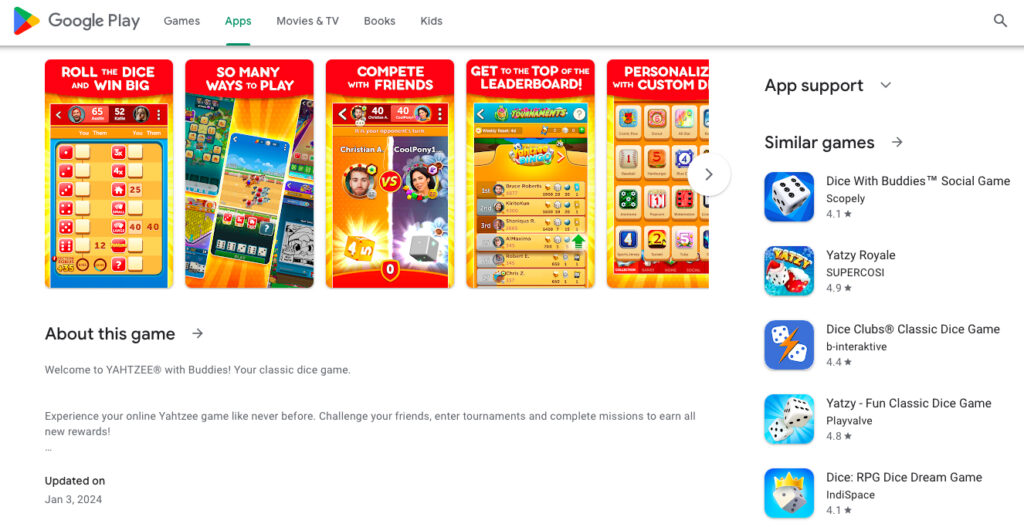For several years now, arbitrage specialists have been actively earning money by attracting traffic to applications in Google Play and AppStore by all possible methods. During this time, specialized stores have appeared where you can buy or rent such applications, as well as the services of professional developers to order. Large arbitrage teams attract programmers and designers for the mass creation of applications. Also, affiliate programs actively offer webmaster apps to maintain a constant flow of traffic to their offers.
Now the choice of applications is huge: choose anyone, attract traffic to it, and earn! But the process is not as simple as it seems. Let’s understand what pitfalls can arise when choosing an arbitrage app.
What’s an app
In the arbitrage world, the term “Apps” refers to a special mobile application that can be downloaded to a smartphone via Play Market or AppStore. It is usually a free game that, when launched, stealthily takes the user to an online casino site where they start playing for real money. If the user downloaded the app through the arbitrageur’s link and deposited money to play, the arbitrageur receives a percentage of the gambling establishment’s profits. The more users install the application and make deposits, the more the arbitrageur earns.

There are two main types of these applications:
- Webview is the most common type. It is a universal browser that opens a link to an offer. The user launches the app, and instead of the expected game for which they installed the app from Google Play, they are presented with a mobile version of the casino. Usually, such apps function for two days to two weeks, after which they are detected and blocked by Google Play moderators.

- A native or native app is a full-fledged program developed specifically for a particular operating system (Android or iOS). Unlike review, which presents a preland to go to an offer, a native app is itself an offer, a specific product.
Native apps can stay on Google Play much longer than web-based apps (reviews) – sometimes up to a year. These apps provide better conversion rates because the user does not have to go through a registration process like in web views. The user quickly connects with the app via their smartphone ID and starts using it. Developing or purchasing such an app costs arbitrageur a large amount of money and takes a lot of time. For these reasons, native apps are used much less frequently than webview-based apps.
Options for arbitrageurs to work with apps
If you are planning to do mobile app arbitrage, there are several methods available to you:
Creating an application from scratch
This is the most difficult option for those who are not familiar with smartphone development. The requirements of the market and app stores have become more stringent.
A few years ago, a novice Java developer could easily create an application and place it in the store, but today this is possible only for experienced programmers. Such a specialist can be found on freelancing, but it can cost up to $1000. In addition, you will need a Google Play account to publish the application, which will cost $70-100.
If you have mobile app development skills, you can try to create it yourself. However, try to make the app as light as possible – up to 5 MB, and use Unity or React JS for development. Not all apps can bring good income in arbitrage. If you create an app of 50 MB or more, users are unlikely to want to download it.
Plugins from affiliates
An option for beginners in arbitrage is to use apps with so-called “stubs” from affiliate programs.
There are certain categories of apps, such as daiting, gambling, and betting, which are usually not allowed to be published in app stores. In such cases, a “cloaca” – a special feature of the app – is used. It shows the store moderators safe content while regular users see the promotional offer.
The content of the stub depends on the type of app: for gambling apps, it can be an arcade game or a runner, and for betting apps, it can be a sports calendar, sports news, or a sports game.
The main rule is that the stub must exactly match the description and design of the app.
Renting an app
Many arbitrage specialists prefer to rent applications on services, as it is cheaper and more convenient than spending hundreds of dollars on their development. The cost of renting usually ranges from 7 to 20 cents per day.
When an arbitrageur rents an app, he must abide by the terms of the contract, which often limits his ability to use the app to its full potential. No changes can be made to it. It’s like sharing: if you borrow a car, you have to return it in the same condition. Damage, such as a broken bumper, will have to be paid for.
Buying off-the-shelf or directly from the developer
Another option is to purchase ready-made software from an intermediary or developer, which has already been successfully tested and is available in app stores. The cost ranges from $200 to $800. However, not all apps from vendors provide profitable arbitrage. There is a risk of encountering cheaters: after hundreds of installations, the application may be blocked by moderators. In such a case, addressing the seller with a demand to replace the app, you risk being ignored.
Advantages of purchasing the app
- Savings over self-development.
- Getting a ready-to-earn product, especially if it has already been tested in stores.
- Access to the source code allows you to make changes and increase the profitability of the app.
- An additional monetization channel besides the traditional one, such as sending notifications.
In addition, such apps often last a long time in the store, as developers regularly optimize and monitor their status.
However, there are disadvantages as well. Many pitfalls in the arbitrage app market can lead to losses. Many people go back to using Facebook because of this.
Minuses of buying
- No guarantee against being locked out of the app store; even legitimate apps sometimes get banned.
- The developer can lose their account in the store, which happens, though rarely.
- Problems with updating the app: every new update requires a second check from Google, which the app may not pass.
- Risk of encountering fraudulent sellers.
Purchase of software for quick assembly in the constructor
Creating applications is now available not only to programmers. There are special platforms that allow you to build an application for any purpose. The main condition is the availability of financial resources.
Here are some examples:
- Verivo AppStudio offers a subscription for $30 per month with a 15-day trial.
- Kalipso Studio – a subscription costs $83 per month and a lifetime license costs $1990.
- AppsBuilder offers subscriptions starting at $15 per month, depending on the plan you choose.
These platforms provide free trials for up to 15 days. However, it is not possible to save the created application within these versions – the developers have provided such an option.
Tips for selecting a stocking stuffer
Regardless of visual appeal, the app should be effectively customized for a particular OS, and function stably, without crashes and bugs to avoid traffic loss.
Key qualities of a successful arbitrage app:
- Intuitive interface with easily accessible control buttons and fast response.
- The size of the app does not exceed 10-15 MB so that users can download it, given the limited and not always high-speed internet.
- Compatibility with the OS of the target audience.
- Relevance to the cultural and regional specifics of the GEO. For example, it is inappropriate to offer Indian users unfamiliar games.
- Attractive and high-quality design, as the appearance of the app plays a key role in attracting users.
It is important to personally test the app from the moment the user downloads it to the first deposit. All controls, animations, and notifications should function flawlessly, and payment cards should be easy to link. Detected defects should be immediately reported to the developers for correction.
How to drive traffic through apps
Today, the most in-demand areas in mobile app monetization are gambling and dating. In second place in popularity are sports betting, and in third place are financial services, especially microloans. The fourth place is occupied by the sphere of cryptocurrencies and mining. There is no point in choosing other directions, it is better to focus on what has already proved its effectiveness and brings good results.
Conclusion
Here’s what you need to know about Apps. When you buy it, you can be sure that no one else will use it at the same moment you do, which reduces the risk of being blocked by moderators. However, before investing in the program, it is recommended that you start by renting or using it for free through affiliate programs to save money at the start.
But remember that an arbitrage app is only a tool. Without proper use, it will not generate revenue. Before buying or renting, you need to carefully select the target audience and geographic region where your offer will be popular. It is important to research local laws governing gambling, dating, sports betting, crypto mining, etc., depending on your niche. It is also important to make sure that the payment systems in your chosen region are stable.
If you scrutinize these aspects, you will be able to avoid losing your budget and succeed. Arbitrage apps allow you to do this if you approach the matter wisely.


